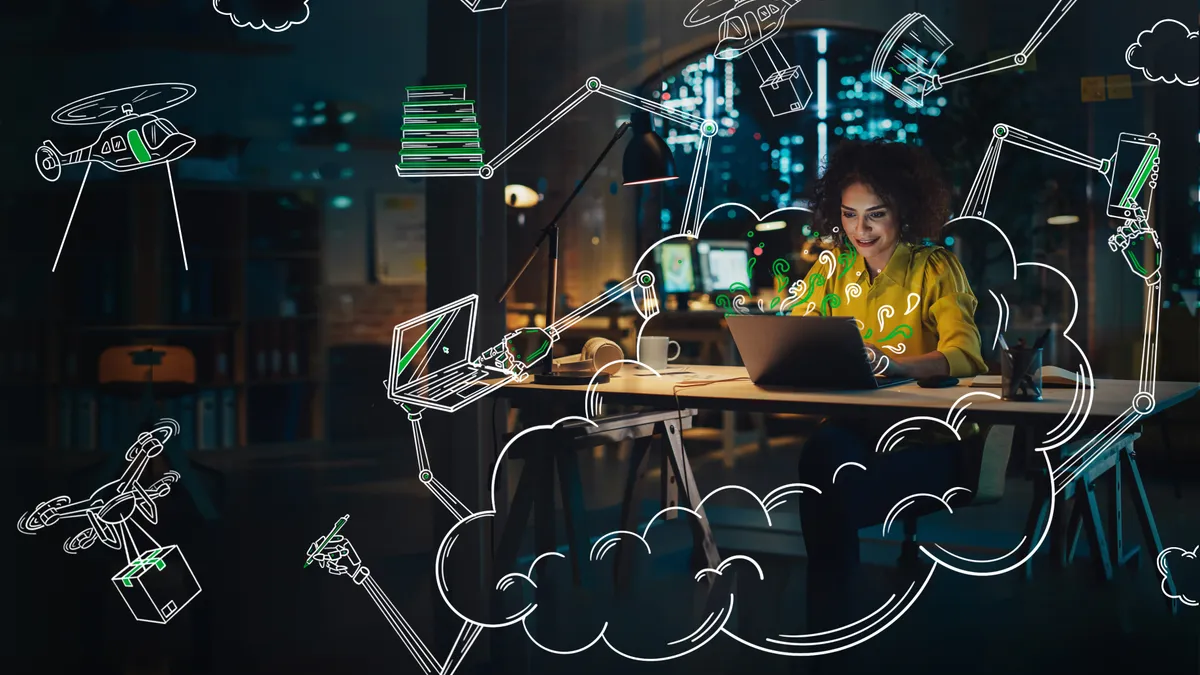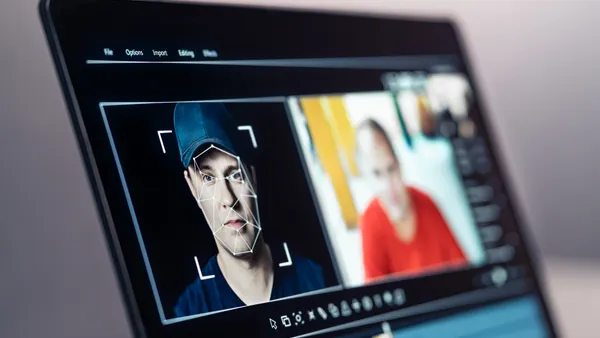Are you experiencing AI FOMO?
You’re not alone.
Three in four organizations expect artificial intelligence to cause disruptive change in their industry in the next three years and most believe AI adoption will reshape their workforce, according to McKinsey.
Similarly, a Kelly survey found that executives and their employees believe automation will strengthen the workforce and improve business performance.
Yet, only one in five companies is actively implementing workforce automation, according to the Kelly report.
What’s holding organizations back? A shortage of talent ready to roll out these technologies.
How can AI turbocharge HR?
On any given day there are an estimated 10,000 unfilled AI and automation-related jobs in the U.S. This talent shortage is a bit of a catch-22, as human resource departments tasked with addressing the skills gap could leverage AI and automation in that effort.
At Kelly, AI-powered automation is supporting efforts to recruit, onboard and retain talent:
- Recruiters use generative AI to draft job descriptions, requisitions, resumés and candidate summaries.
- AI-powered sourcing tools provide labor market intelligence and match the most qualified candidates with job postings.
- Online talent marketplaces use AI to assess talent profiles and determine which jobs are the best fit, delivering a more personalized experience for job seekers.
- Digital workers manage the onboarding process from distributing new-hire emails to shipping welcome kits.
- AI chatbots answer basic HR questions and remind employees of critical deadlines.
- AI co-pilots capture interactions with customers, which is used to train and up-skill employees.
These tools reduce human errors, deliver critical data at scale and save time and money, but their impact is perhaps best measured in how they improve the overall talent experience. AI-powered automation removes tedious, soul-crushing work, allowing recruiters to spend more time engaging with candidates and freeing up time for career development.
Where’s the talent that drives AI?
Full-time workers, temporary workers, contract workers…digital workers. When organizations view AI as another labor channel, it has the potential to improve efficiency, productivity and the employee experience in every area of business.
But to make the most of AI and automation, you need the right talent in place. Finding that talent is the real challenge. Roles like "ChatGPT Prompt Engineer" didn’t even exist a year ago and there’s a race to re-skill and up-skill the workforce in this AI-powered era.
Many organizations are not yet ready to run that race. A new report by Oliver Wyman found that 79% of workers want training in generative AI, but only 64% say they are receiving the training they need, and 57% found their training inadequate. Kelly’s 2023 Global Re:work Report recently found that, while half of global executives say the skills needed in their organizations are to set change dramatically and addressing skills gaps is a top priority, they rate their organization’s ability to develop employees as poor. One in four say they do not even have a clear understanding of the skills available now and those they are likely to need in the future.
That’s why many companies turn to a workforce solutions partner who can deliver that talent, and that’s why Kelly launched Kelly Arc – a new talent platform for AI and automation jobs.
Kelly Arc is the first app of its kind that allows job seekers to search for AI and automation jobs, from contract work to full-time positions. The user experience is akin to your favorite dating app, streaming service or e-commerce site. The best jobs tailored to a candidate’s unique skills and preferences are available at the push of a button, and, on the flip side, the most qualified candidates that match employers’ posted roles. The app itself combines advanced AI technology with support from recruiting experts to make it easy for employers and job seekers to connect.
So, what's the bottom line?
AI will not replace people, but people who can use AI will replace those who can’t. And the companies that invest in AI talent will lead the automation revolution.
And those who don’t?
They’ll continue to experience AI FOMO.











